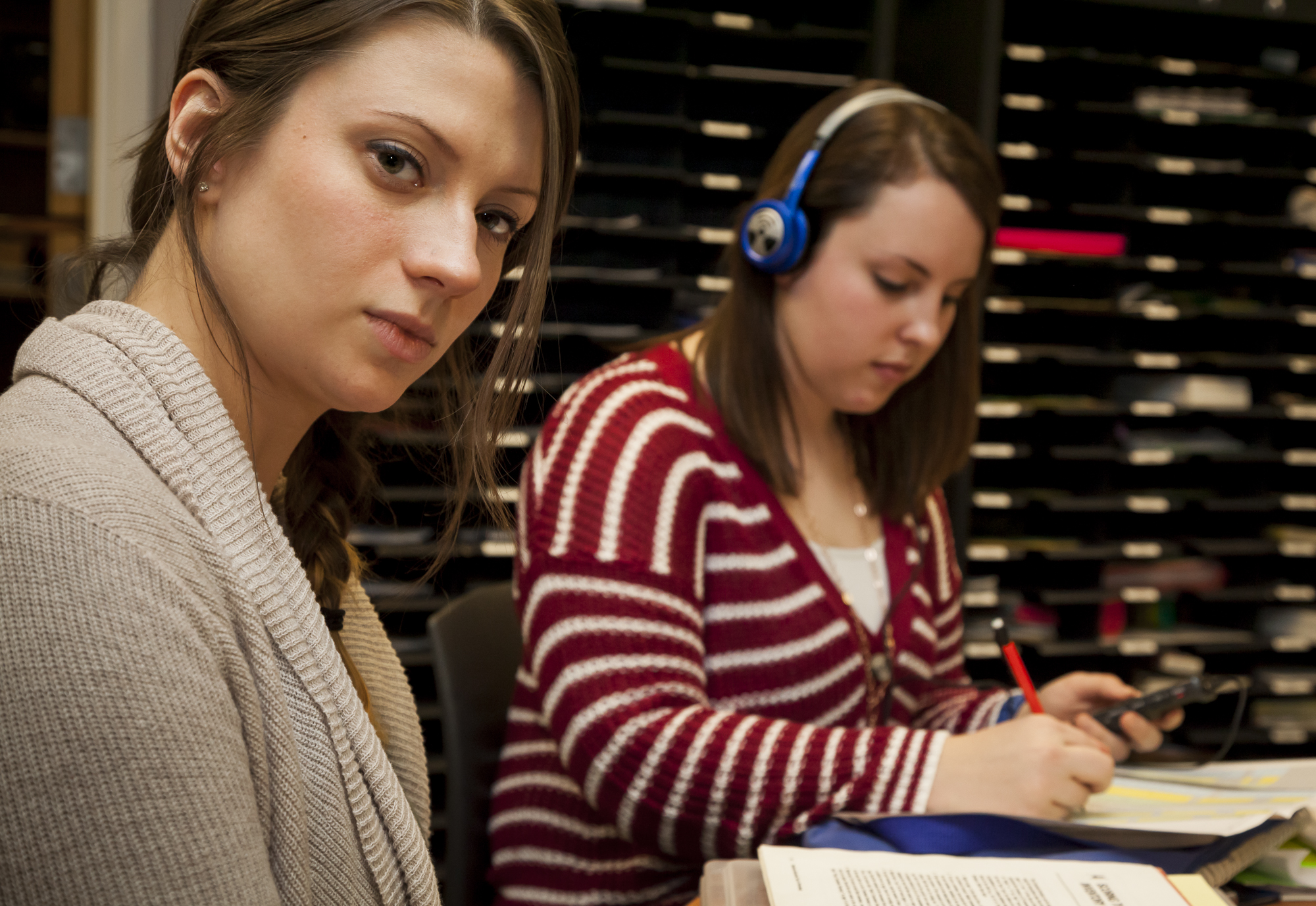What can I do with a degree in Communication Sciences & Disorders?

Graduate school options: fields related directly to our degree
- Master’s in speech-language pathology. Helpful general information: http://www.asha.org/Students/undergraduate-students/. Finding a program: http://www.asha.org/edfind/
- Doctorate in audiology (AuD). Links above helpful for this as well. See also http://www.audiology.org/.
- Clinical doctorate in speech-language pathology (SLP-D). This is a growing degree with more programs offering it every year. Find programs at: http://www.asha.org/edfind/
- Research doctorate in speech-language pathology or speech and hearing science. Many programs—see the links above on finding a program. http://www.asha.org/Students/Speech-Language-Hearing-Research/ Students interested in research and higher education careers should contact the CDIS Graduate Coordinator for information about our M.S.-Ph.D. doctoral bridge program.
Graduate school options: allied health and educational fields related to our degree
- Master’s in occupational therapy (This requires advance planning in undergraduate courses but all prerequisites do count on CDIS checksheet.)
- Master’s in gerontology
- Master’s of Education in Special Education/Intervention Services
- Other Master’s degrees in education a student may consider are available here: http://www.bgsu.edu/education-and-human-development/degree-programs.html
- Master’s of Arts in Teaching of English as a Second Language (BGSU offers a Graduate Certificate in TESOL.)
- Master’s in public health or allied field (e.g., health promotions).
- Master’s in mental health counseling
- Master’s in rehabilitation counseling
- Master’s in disability studies (Scroll to middle of table for programs in U.S.)
- Physician’s assistant (This requires additional coursework.)
- Master's in social work. Undergraduate degree in social work not required.
- Graduate-entry MSN programs, Master’s in nursing. Different requirements from program-to-program, info about University of Toledo’s program here. More information about graduate degrees in nursing can be found by searching graduate-entry MSN programs online.
- Doctorate of Physical Therapy
Graduate school options: other. A background in human development and communication may be an excellent preparation for a wide range of careers. A few examples:
- Master’s in college student personnel
- Master’s in Criminal Justice
- Law school
- Master’s in Human Resource Management
Graduate certificate programs or other certifications.
Special programs
Examples of positions students have taken instead of going to graduate school
- Behavioral therapist for children on the autism spectrum.
- Working with adults with intellectual disabilities. Example positions: job coach; housing support staff (in community residences, for example); or classroom support staff (e.g., in Wood Lane school)
- Speech-language pathology assistant (SLPA) in states that allow this. Important note: your CDIS degree is a pre-professional degree. So, does not prepare you for SLP-A jobs. In order to work as an SLPA, you may need to complete additional coursework and a supervised practicum. There is no mechanism for qualifying for such positions in the state of Ohio. If you are interested in exploring the speech-language pathology assistant, please refer to the ASHA SLPA application page and frequently asked questions about SLPAs.
- Substitute teacher (especially for intervention services/special education)
- Positions in the health care insurance industry
Things to consider when planning your future career:
- Many positions require a bachelor’s degree at the entry level. You are now eligible for many entry-level positions.
- Develop a professional resume that reflects the experiences and talents you have to offer; you may need more than one version if you are pursuing more than one direction in your career search. Include your work, volunteer, and/or other relevant co-curricular experiences when building your resume.
- Make use of the Career Center, including attending job fairs, using their career interest assessment tools, career counseling, and any other resources offered to you by the university.
- Talk to people in fields and careers that are interesting to you to learn more about alternate options.
- And finally, remember that your undergraduate degree has provided you with the knowledge and skills required to pursue a variety of different career options. Your college experiences have prepared you to manage your time and schedule, to write, do research, to communicate effectively, to advocate for yourself, and think critically.
Updated: 09/18/2024 01:06PM
